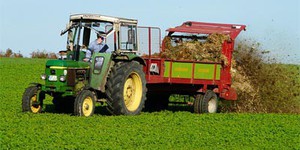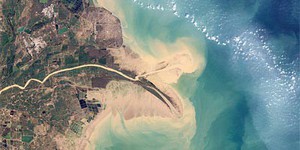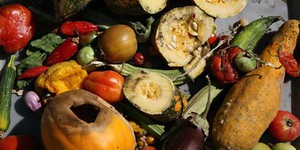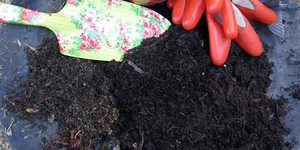Others Like “Water Quality” (top 20 results)
|
When pesticides are applied to protect crops, run-off of potentially harmful pesticides is a major problem. Can water plants such as hardstem bulrush, common cattail, parrotfeather and smooth scouring rush promote pesticide breakdown? If so, diversion of irrigation run-off into plant-filled ponds could help reduce pesticide pollution. Mix malathion at 12.5% of the recommended application strength (to simulate dilution by rain or irrigation water). Use 5-gallon buckets for testing various…
Read more
Many people routinely use fertilizer for crops, gardens, and lawns. What people don't know is that each time they apply fertilizer, the fertilizer seeps through the soil into the water table. This can eventually lead to the contamination of a local water source, like a stream, pond, lake, bay, or ocean. This is an especially big problem for agricultural practices that frequently use large amounts of fertilizer on fields that are connected by irrigation channels. The run-off of fertilizer…
Read more
Visit your local landfill to collect dumping statistics by watching the types of trash people bring to the dump. Identify problem areas and types of waste that are commonly brought to the dump. Propose new uses for common landfill problems like tires, construction materials, plastics, appliances, and computer parts. Measure packaging materials of some common products. Invent ways to reduce the amount of packaging and increase the use of recyclable materials like popcorn or corn-based packing…
Read more
Reclaimed (treated) wastewater can be used for many purposes, including landscape watering and freeing up valuable fresh water for other purposes (like drinking water). It's a great way to conserve water, but is it really safe? This science fair project is designed to find out.
Read more
Silt is a fine sediment that collects on the bottoms of rivers, streams and lakes. The natural process of the decay of organisms into the water can lead to the production of silt at the bottom of a lake. Silt can be a rich source of nutrients for fish and bottom dwellers like crayfish. However, it can also be introduced by unnatural processes. One problem for rivers, lakes and streams is the buildup of excess fine sediment introduced by industry. Because it often contains harmful chemicals it…
Read more
Divide a part of your garden into two equal plots, with each plot receiving equal amounts of sun. Cover one plot with two inches of organic mulch, such as compost or ground bark. Leave the other plot uncovered. Use the same amount of water for each plot for two or three weeks. At the beginning of the experiment, and at one-week intervals, dig down and check the soil in each plot for moisture content. Which plot holds water better? Which plot shows better plant growth? (McCausland, 2006)
Read more
No one can deny the devastating consequences of an oil spill on the local wildlife. Oil affects all levels of the ecosystem, from plants to fish and birds. What happens to water plants if you add motor oil to their pot? What is the effect of motor oil on the health of a goldfish, or water insects? What happens to the barbs of a bird feather if they are dipped in oil? Can you test different types of environmentally-friendly detergents for cleaning the bird feathers? Can you test different…
Read more
What happens to the food leftovers in your home? Do they go in the trash? Down the garbage disposal? Or get gobbled up by the family dog? Food leftovers are a type of organic waste, a waste that comes from a plant or animal. Organic waste—like table scraps, agricultural waste, and human and animal waste—is biodegradable. This means, it can be chemically broken down by bacteria, fungi, or other living organisms into very small parts.
Figure 1. This…
Read more
Has your house (or one of your friend's houses) been remodeled recently? Were any improvements made for energy efficiency (solar systems, better insulation, passive solar heating, better lighting)? Compare your family's energy costs for a similar time period before and after the remodeling (remember that energy usage often varies seasonally). Monthly bills often have a bar graph showing energy usage for the previous 12 months. You may also be able to get information on past energy usage…
Read more
Make your own fertile soil using kitchen scraps, manure, leaves, grass clippings, and other compostable materials. Which materials make the best compost? How does the amount of nitrogen change the rate at which the compost forms? How does a 'hot' compost pile compare to a 'cold' compost pile, or how does traditional composting compare to worm composting, or vermiculture?
Figure 1. Different composting methods yield different soils. In this picture, the soil on the…
Read more
|
Explore Our Science Videos
DIY Mini Propeller Car
How to make an anemometer (wind speed meter)
Draw with a Pantograph - STEM Activity











